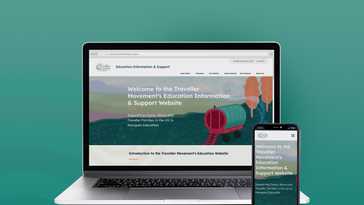
Learn More: Post-16 Education
Attending college or sixth form can be an incredibly exciting time for a young person. It offers the opportunity to study more specialised subjects that interest them, while gaining greater independence as learners and young adults. In the UK, college courses are free for 16 to 19-year-olds, so it’s important to make the most of this educational opportunity while it is available at no cost.
Introduction
Post-16 education marks an important phase in a young person’s academic and personal development. After completing their GCSEs, students in the UK have the opportunity to continue their education through various pathways, including sixth form, college, apprenticeships, or vocational training.
This stage allows them to focus on subjects or skills that align with their interests and career aspirations, while also offering a more independent learning environment. Post-16 education is designed to provide young people with the qualifications, knowledge, and experience they need to move into higher education, employment, or further training.
What sub-sections are available on this page?
-
-
- Am I Required to Attend College?
- Academic Pathways for Post-16 Students
- Early College Entry (For 14–16-Year-Olds)
-
Am I Required to Attend College?
In England, the mandatory school age—when a young person must remain in education—has been extended to 18 years old. This means that you can leave school on the last Friday in June if you’ll be 16 by the end of the summer holidays. However, you must then choose one of the following options:
- Stay in full-time education, such as at school, sixth form college, or further education college.
- Start an apprenticeship or traineeship.
- Spend 20 hours or more a week working or volunteering while also participating in part-time education or training.
Your local authority has a duty to ensure that you are offered a suitable place by the end of September after you turn 16. This is known as the September Guarantee. Contact your local authority for information on who can assist you in finding a suitable offer.
You may be eligible for the 16 to 19 Bursary Fund, which can help with costs such as books, travel, or equipment if you struggle with education or training expenses.
If you have an Education Health and Care (EHC) plan, you can receive support in choosing your next steps and additional help while you are in education, training, or work.
Stay in full-time education
You can take a range of subjects that lead to qualifications keeping your options open, such as GCSEs or A levels. Courses like T Levels or BTECs allow you to focus on a specific career area, such as construction, healthcare science, or digital careers. Some careers may require specific qualifications, so always research where your chosen course might lead.
Combine work and study
You can gain practical skills, obtain work experience, and earn qualifications that employers value through:
Academic Qualifications for Post 16 Students
If you want to continue studying some of your favourite subjects or are considering attending university, you may want to explore the following types of Level 3 qualifications in England, Northern Ireland, and Wales, or Level 6 qualifications in Scotland:
- A levels – You usually study three or more subjects, with a wide range of options available. A Levels are typically studied concurrently over two years.
- Scottish Highers – This is the main qualification required for entry into higher education in Scotland. There are over 60 subjects available, and you usually study four or five Higher subjects. Each Higher is composed of units, and you need to pass all units and the course assessment to achieve the qualification.
- Baccalaureates – These broad-based programmes combine academic subjects with components designed to develop essential skills. The Welsh and Scottish Baccalaureates are available in those respective countries, while the International Baccalaureate is offered globally.
- Extended Project Qualification (EPQ) and Interdisciplinary Project – These qualifications are taken alongside A Levels and involve independent study on a topic of your choice.
- Core Maths – This group of Level 3 maths qualifications is usually taken alongside A Levels or other qualifications to help develop mathematical skills and critical thinking following GCSEs.
- GCSEs – If you do not have a grade C/4 or above in GCSE English or maths, and you are studying at school or college, you will need to retake these subjects to achieve grades A* to C/9 to 4 (or equivalent level qualifications, which can vary in Scottish universities; you can check specific requirements on university websites). If you are a trainee or apprentice, you may take Functional Skills qualifications in these subjects, but if you aim to attend university later, it is advisable to retake the GCSEs. You can also study other GCSE subjects.
Applied Learning
If you are interested in a particular job sector but are not yet sure what specific job you’d like to pursue, these qualifications might suit you. They combine practical learning with the development of knowledge and skills, enabling you to progress to further education, training, employment, or university.
- BTEC diplomas – These provide a broader knowledge of a particular sector or industry. They are available in various sizes, equivalent to one, two, or three A Levels, and can be taken in combination with other qualifications.
Technical Qualifications
If you have a clear idea of the job you want to do or prefer a course that is more practical and includes work experience, these qualifications may be the right choice for you. Many types of technical qualifications are available across a wide range of subjects and career areas, catering to all levels from entry-level up to Level 8.
- NVQs and SVQs: These qualifications equip you with the skills needed for specific jobs and can be pursued if you have a full-time job or are on a course with a work placement.
- T Levels: These encompass a range of qualifications that provide specialist technical knowledge and skills, recognised as pathways to specific job roles.
For more information on available courses, including those not mentioned here, please visit the UCAS website.
Early College Entry (For 14–16-Year-Olds)
Many colleges in the UK offer early entry admission for 14 to 16-year-olds (Years 10 and 11). In some cases, these courses may be funded by your secondary school, allowing your child to remain on the school roll. This typically occurs when a pupil follows a part-time college timetable, such as attending college one day per week.
Additionally, some 14 to 16-year-olds can complete a vocational pathway and curriculum entirely at college. This option is often pursued when it is deemed the most effective way for a young person to learn.
For instance, if a student is struggling in school and is unlikely to stay until their exams in Year 11, focusing on a vocation they enjoy—such as bricklaying or electrical work—while receiving instruction in only maths and English as core subjects can provide an opportunity to re-engage with education. College providers deliver accredited programmes and give young people a glimpse of what to expect in the workforce.
Typically, a referral for this scheme must be initiated by your school. For more information regarding the referral process, please contact the college directly.
It is important to note that not all local authorities offer early college provision for 14 to 16-year-olds. To check if your local authority provides this option, please visit the Gov website for more information.


